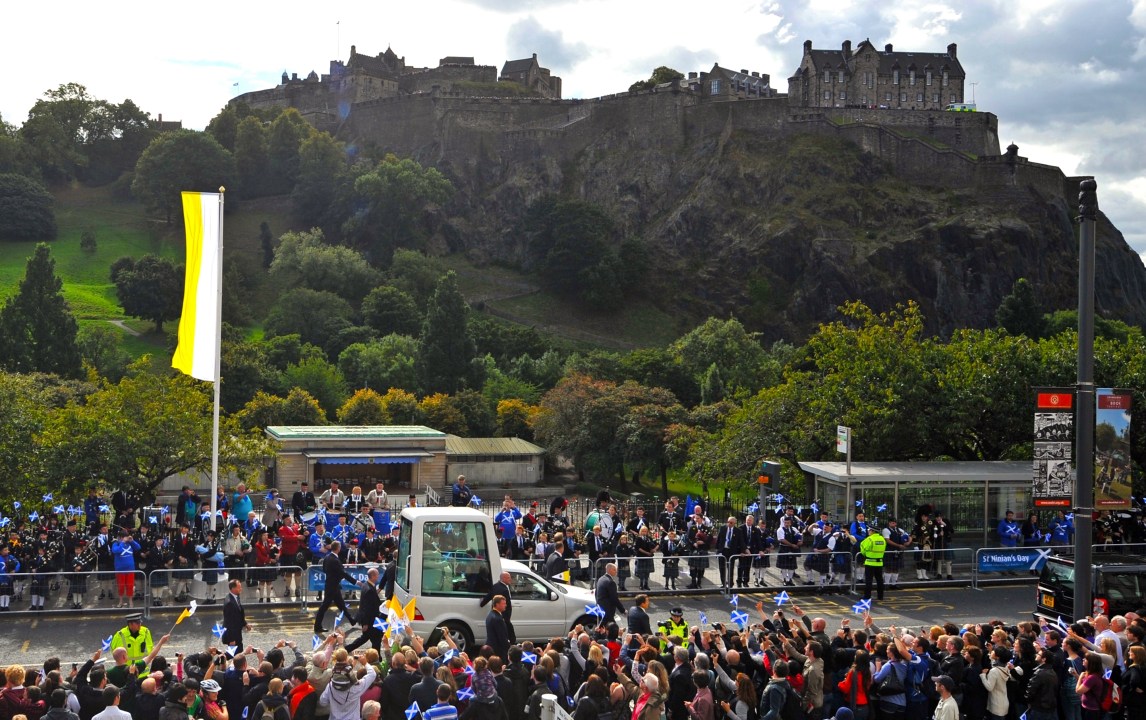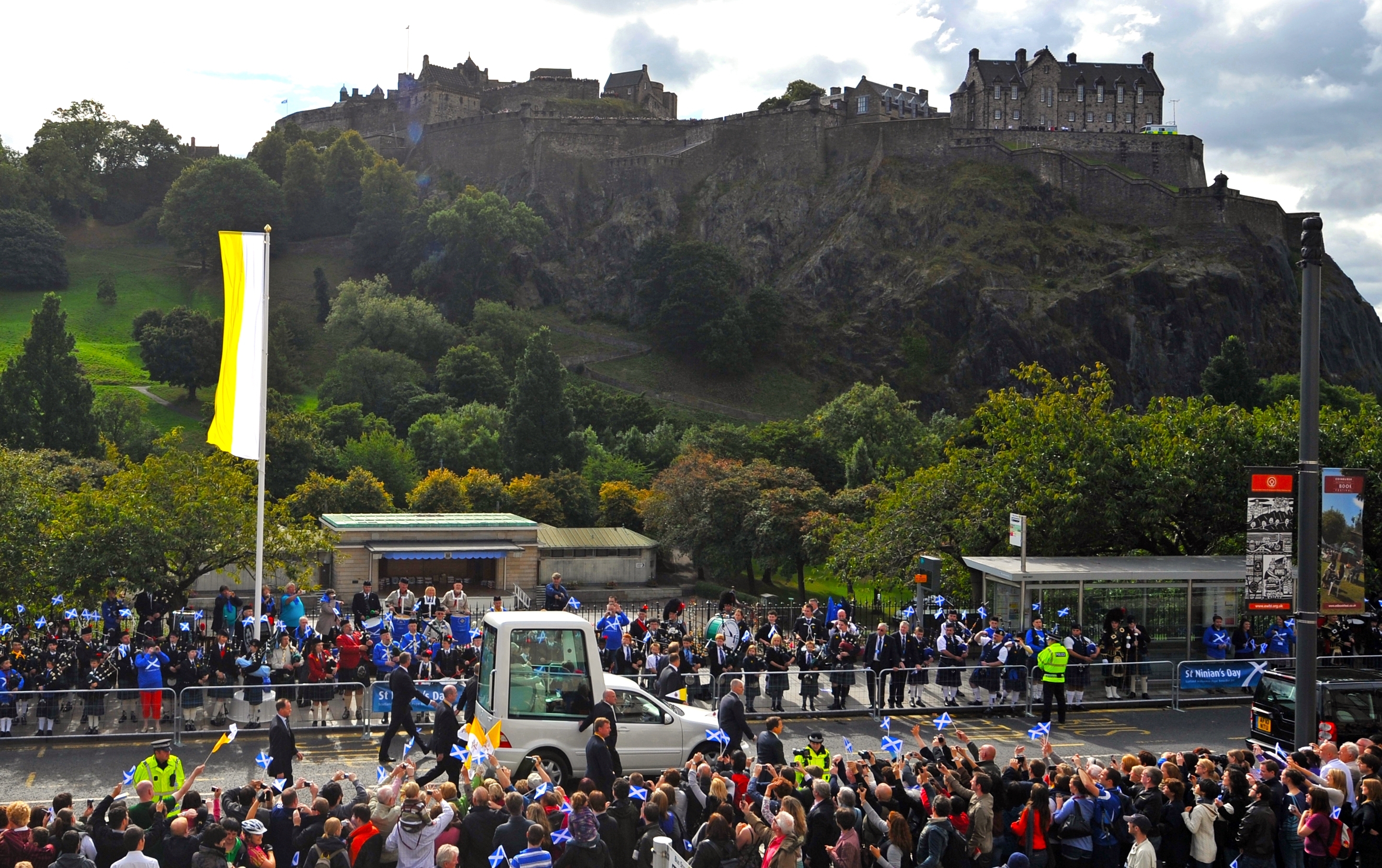You wait 2,000 years for a papal visit and three come along almost at once. Reports in the Scottish press suggest that Pope Francis would like to say Holy Mass while in Glasgow for the COP26 climate summit in November. It would mark the third time a sitting pope has visited Scotland and celebrated Mass there. Saint John Paul II was the first to come, in 1982, and led an estimated 300,000 in worship at Glasgow’s Bellahouston Park, then in 2010 his apostolic successor Benedict XVI gave an open-air Mass in the same park to a crowd of 70,000. Both events were seen as successes, attracting interest from non-Catholics and prompting reams of favourable media coverage.
This was especially significant in a country where open hostility towards and pervasive discrimination against Catholics was a living memory, and, in the case of 1982, more than that. William Wolfe, president of the SNP, objected to John Paul II’s visit to Scotland on the grounds that:
The aim of the RC Church was and is world domination in the belief that the Pope is destined to rule over all nations and all men. Who will benefit from a state visit to these countries by the Pope? From a Protestant point of view, certainly not the non-RC majorities in them.
The Pope could provide some spiritual sustenance in the face of coercive progressivism
For good measure, he followed up with an observation that the Falklands War, ongoing at the time, was about the ‘cruel and ruthless fascist dictatorship of a Roman Catholic state’.
Fast-forward 28 years and Alex Salmond, a Church of Scotland man, attended the Mass at Bellahouston and heard Benedict XVI conclude his homily that day in Gaelic: ‘Gum beannaicheadh Dia Alba’ (‘May God bless the people of Scotland’). That moment symbolised how much Scotland had changed.
Anti-Catholicism has not been wholly driven out of Scottish life but a public Mass by Pope Francis would feel like another death knell for old prejudices. Scotland would have gone in a few generations from a nation of routine, institutionalised anti-Catholic bigotry to one which was three-for-three on papal Masses. The Holy Father’s visit could also provide some much-needed spiritual sustenance for the faithful as they face a new animus that crosses denominational and credal divides: coercive progressivism. When Saint John Paul II addressed Scottish Catholics in 1982, he remarked that believers were ‘constantly exposed to pressures by modern society, which would compel us to conform to the standards of this secular age, substitute new priorities, restrict our aspirations at the risk of compromising our Christian conscience’.
His words could not have been more prescient. He was out only by the margin of the term ‘secular’. Far from a neutral dissent from religious, social and other beliefs, coercive progressivism (or ‘wokism’ or ‘identity politics’ or whatever you choose to call it) is in fact a rival megachurch with its own doctrines, high priests, icons, blasphemies and devout followers. In Scotland, coercive progressivism is proving most aggressive in its reclassification of different viewpoints, including those that express scriptural teachings, as ‘hate speech’ and its evangelical proselytising for gender ideology. And while no doubt Nicola Sturgeon will put in an appearance if the Pope does give an open-air Mass, she is still the head of a government that imposed an unlawful blanket ban on public worship during the Covid-19 pandemic. (Despite a scathing judgment from the Court of Session, which went so far as to suggest the Scottish government didn’t fully understand the rights enshrined in the ECHR, the court’s decision elicited much less in the way of comment or concern from commentators and legal academics who ordinarily can’t contain themselves when a court damns a ministerial breach of the law.)
If we are due another papal homily in November, His Holiness might consider including a few pointed words for the prophets of our new religion on the matters of tolerance, liberty of conscience and freedom of worship, virtues which don’t take up much chapter and verse space in the theology of progressivism.








Comments